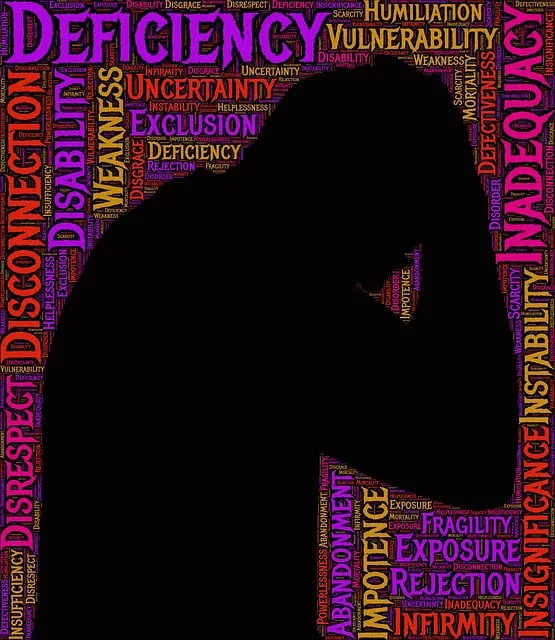Diagnosing mental illness accurately is challenging due to individual variations in symptoms and conditions like depression and anxiety sharing similar signs. Castle Rock Kaiser Permanente (CRKP) addresses this through innovative approaches, including self-esteem improvement programs, stigma reduction, holistic evaluations with empathy building strategies, regular quality checks, staff training, burnout prevention, and compassion cultivation. CRKP's comprehensive, patient-centered method enhances diagnostic accuracy at mental health appointments, using tools like Inner Strength Development, regular consultations, and advanced assessment methods to improve patient outcomes in a supportive environment. Their strategies combine patient empowerment and provider well-being, leveraging technology and multidisciplinary teams for better accessibility and personalized treatment plans.
Mental illness diagnosis accuracy is a critical aspect of patient care, yet challenges persist in the field. This article explores current hurdles in mental health assessment and highlights innovative efforts to enhance diagnostic reliability. We delve into strategies employed by organizations like Castle Rock Kaiser Permanente, known for its commitment to improving mental health services through advanced approaches during appointments. By examining these initiatives, we gain insights into potential game-changers for accurate mental health diagnosis, with a focus on the success of Castle Rock Kaiser Permanente’s methods.
- Understanding the Current Challenges in Mental Illness Diagnosis
- Castle Rock Kaiser Permanente's Approach to Enhancing Diagnostic Accuracy
- Innovative Strategies for Improving Diagnosis Reliability
- The Impact and Future Directions for Accurate Mental Health Assessment
Understanding the Current Challenges in Mental Illness Diagnosis

Diagnosing mental illness accurately can be a complex task due to the multifaceted nature of human behavior and emotions. The current system often struggles to capture the nuances of mental health conditions, leading to misdiagnoses or delayed treatment. One significant challenge is the subjective experience of symptoms, which varies greatly from person to person. For instance, what feels like persistent anxiety to one individual might be a normal response to stress for another. This variability makes it difficult for healthcare providers, especially during Castle Rock Kaiser Permanente mental health appointments, to pinpoint the exact diagnosis.
Furthermore, many mental health conditions share similar symptoms, creating a diagnostic dilemma. Conditions like depression and anxiety can present with overlapping signs, making it crucial to delve deeper into an individual’s history and experiences. Self-esteem improvement and mental wellness coaching programs have emerged as potential tools to enhance diagnosis accuracy by empowering individuals to communicate their feelings effectively and providing professionals with valuable insights during these appointments (Castle Rock Kaiser Permanente mental health appointment number). Additionally, mental illness stigma reduction efforts can encourage more open conversations, leading to better understanding and more precise diagnoses.
Castle Rock Kaiser Permanente's Approach to Enhancing Diagnostic Accuracy

Castle Rock Kaiser Permanente has taken a pioneering approach to enhancing mental health diagnostic accuracy. They emphasize a holistic evaluation process that goes beyond traditional symptoms. By integrating Empathy Building Strategies, their professionals foster better patient-provider connections, allowing for more nuanced understanding of patients’ experiences. This approach encourages individuals to share their stories openly, which is crucial in accurate risk assessment for mental health professionals.
The organization prioritizes Mental Health Awareness by offering comprehensive training programs that equip staff with the latest research and tools. They also implement regular quality assurance checks during mental health appointments to ensure consistent and precise diagnoses. These efforts not only improve patient outcomes but also create a more supportive and inclusive environment, reflecting their commitment to revolutionizing mental healthcare delivery.
Innovative Strategies for Improving Diagnosis Reliability

In the realm of mental health diagnosis, precision is paramount to ensuring effective treatment and recovery journeys. To enhance reliability, Castle Rock Kaiser Permanente has pioneered innovative strategies. One such approach involves integrating Inner Strength Development programs that empower individuals to navigate their conditions with resilience. These initiatives, coupled with regular mental health appointment number consultations, enable healthcare providers to gather comprehensive data, leading to more accurate diagnoses.
Furthermore, Burnout Prevention Strategies for Healthcare Providers and Compassion Cultivation Practices play a pivotal role in maintaining the integrity of diagnosis processes. By fostering a culture of empathy and self-care among medical professionals, these strategies mitigate potential biases and subjective interpretations, thereby enhancing diagnostic reliability. This holistic approach, combining patient empowerment and provider well-being practices, is revolutionizing mental health care at Castle Rock Kaiser Permanente.
The Impact and Future Directions for Accurate Mental Health Assessment

Accurate mental health assessment is paramount for effective treatment and improved patient outcomes. The current landscape in Castle Rock Kaiser Permanente mental health appointments underscores the need for enhanced diagnostic tools and methods. Many patients present with complex symptoms, often reflecting co-morbid conditions or unique personal histories that can be difficult to discern. This complexity necessitates a multifaceted approach, integrating advanced assessment techniques, comprehensive patient history taking, and collaborative multidisciplinary teams.
Looking ahead, future directions in mental health assessment focus on innovating technology for remote evaluations, integrating Crisis Intervention Guidance, and promoting Coping Skills Development as preventive measures for Depression Prevention. These efforts aim to increase accessibility, reduce stigma, and empower individuals to actively participate in their care journeys. By leveraging these advancements, healthcare providers can strive towards more precise diagnoses and personalized treatment plans tailored to individual needs.
Mental illness diagnosis accuracy has long been a complex challenge, but with dedicated efforts like Castle Rock Kaiser Permanente’s innovative approach and innovative strategies, significant improvements are within reach. By leveraging advanced tools and fostering a culture of continuous learning, as demonstrated by the success of their mental health appointment number initiatives, we can enhance reliability and ensure more effective care. The impact of these efforts promises a brighter future for accurate mental health assessment, enabling professionals to better support individuals in need.






